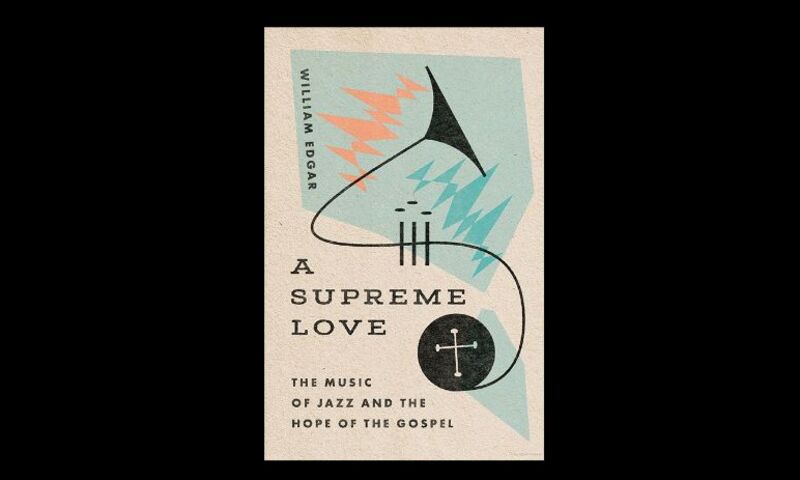I just finished reading , by William Edgar. I enjoyed this book. It has a good chance of making my top-seven list for 2023 when I post my favorite Christian books at the end of the year. (Like , , , , and .)
Dr. Edgar is a professor of apologetics at Westminster Theological Seminary in Philadelphia, and himself a jazz . He clearly loves jazz music ŌĆö in all its varieties. His affection for the genre(s) is infectious. The authorŌĆÖs love of jazz surfaced throughout the book, and repeatedly drew me in.
I appreciated EdgarŌĆÖs sketch and interpretation of jazz history, beginning with its roots in the miseries of slavery, through the (miraculous) embrace of the gospel by many enslaved persons; from spirituals and blues and ragtime into big-band, bebop, and cool, and finally into the diversity of contemporary jazz forms. I bought this book thinking that it might be full of substantial philosophical evaluation of jazz and its relationship to the Christian message (and there was some of that), but I found myself reading more about the history of jazz. Perhaps two-thirds of the book is historical description. So, I didnŌĆÖt get exactly what I was expecting, but I certainly appreciated what I received.
The thesis of A Supreme Love is that jazz music highlights the movement from deep sorrow into inexpressible joy, and that such movement is incomprehensible apart from understanding the influence of the Christian gospel on the genre. Edgar is not claiming that all jazz musicians were or are Christians (certainly not) nor that they all were personally influenced by church music, but rather claims more broadly that the development of jazz, in all its variegations and versions, is profoundly indebted to the movement from mourning to inexpressible joy found in the gospel.
As one who has been listening to jazz music since my childhood, when my father blasted on the stereo on Saturday mornings (at least when we werenŌĆÖt listening to classical music), I found EdgarŌĆÖs analysis to be winsome and largely persuasive. Historians who tell the story of jazz without acknowledging the influence of Christian faith upon the genre would seem to be missing a key element in its development. (By the way, we are not talking primarily about the influence of the Christian message on the words of vocal jazz, though such influence sometimes exists, but rather upon the movement from sorrow to joy expressed through the music itself.) Edgar, in my opinion, effectively highlights the Christian influence on jazz, which seems to have been his primary goal in writing this thought-provoking book.
Actually, there were many aspects of jazz history I knew nothing about before reading this book. I appreciated the way Edgar organized the assorted pieces of jazz history into a readable whole for people like me who enjoy listening to jazz, but donŌĆÖt live in that world.
I did face a bit of disappointment with this book, however. I bought it with the hope that Dr. Edgar, as a professor of apologetics at a major Christian , not only would argue for the influence of the Christian message on the development of jazz (as he did), but would somehow connect jazz more profoundly to GodŌĆÖs grand narrative as a way of drawing people to Christ. IŌĆÖm unsure how such an argument should proceed, but I wonder if, perhaps, he could have started by drawing analogies to the way great literature works. Just as many epic stories adhere to a plot line that appears profoundly dependent at a deep level upon the greatest storyline of all (creation, fall, redemption, new creation), echoes of those elements seem also to emerge in jazz. It is not that every song expresses all the components of this grand narrative (not even close), but the overall movement of jazz music (and many discrete jazz sets as well), at least give the impression of some sort of dependency on such a narrative. Jazz appears to express notions that have been borrowed from the over-arch of GodŌĆÖs redemptive purposes for a fallen world. Van Til might have labeled it borrowed capital. Without some sort of influence from this deeply-embedded epic narrative (GodŌĆÖs narrative), jazz music (or any great music, for that matter) likely would not wield such influence over listeners. The misery of the Fall and a longing both for redemption and a just future seems almost hardwired into jazz ŌĆö in a way that may not be quite as transparent in other musical genres. Perhaps as a professor of apologetics, there might have been space for Dr. Edgar to develop this idea, or at least something akin to it.
Despite this comment, I want to make clear that I truly enjoyed reading A Supreme Love and learned a lot from it. I hope many others benefit from reading this book. I am happy to recommend it.
and other resources are available at
 51┬▄└“
51┬▄└“

.jpg)
.jpg)
.jpg)
